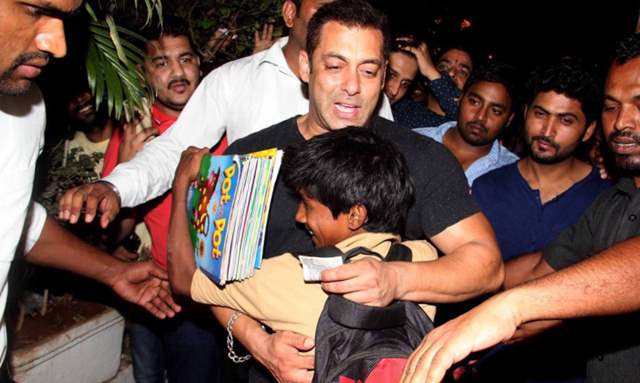Quick Summary:
- 1. Salman Khan, a popular Bollywood actor, became India's first celebrity bone marrow donor in 2010.
- 2. He donated his bone marrow to a young girl named Pooja, who was suffering from bone marrow cancer.
- 3. Organizations like Marrow Donor Registry India and DATRI are crucial in facilitating these life-saving donations.
Who is Salman Khan?
Salman Khan, popularly known as "Bhaijaan" in India, is a well-known Bollywood actor who has starred in a number of successful movies. In addition to his success in movies, Salman is well-known for his charitable work with the Being Human organization. Through a variety of humanitarian endeavors, he touches the lives of many people beyond the silver screen.
Salman Khan's Generosity: Bone Marrow Donation
Salman Khan became India's first celebrity bone marrow donor in 2010 when he gave his bone marrow to a young child named Pooja suffering with bone marrow cancer. This kind deed was not only a medical milestone but also a strong message inspiring others to get forward and help to save lives by means of a bone marrow donation.
Who is Pooja?
Pooja was a young girl who had bone marrow cancer and needed a transplant to stay alive. Because of her condition, she needed a bone marrow donor who was a battle. Salman Khan's decision to donate his bone marrow gave her a chance on new life. Pooja's story shows the value bone marrow donations are for healing diseases that could kill you.
Impact of Salman Khan’s Donation
Salman Khan's bone marrow donation had a profound impact. His public acknowledgment and the subsequent media coverage raised awareness about the importance of bone marrow donation. It encouraged other celebrities and the general public to consider becoming donors, highlighting how one act of kindness can inspire a nation to contribute to a noble cause.
Understanding Bone Marrow Donation
Bone marrow is a spongy tissue found in bones that produces blood cells. Bone marrow donation involves extracting marrow from a donor's bone, typically the pelvic bone, to transplant into a patient in need. This procedure is vital for treating various blood disorders and cancers, offering a chance for patients to recover and lead healthy lives.
The Procedure
The donation process involves:
- Evaluation: Potential donors undergo medical examinations to ensure they are suitable candidates.
- Donation: Under anesthesia, marrow is extracted from the pelvic bone using a needle.
- Recovery: Donors typically recover within a few weeks, with some experiencing mild discomfort .
Need for Bone Marrow Donors
Despite the low-risk nature of bone marrow donation, there is a significant need for more donors. Each year, thousands of patients require bone marrow transplants, but only a fraction find compatible donors. The disparity highlights the urgent need for more individuals to register as potential donors.
Key Reasons for Donor Shortage
- Awareness: Many people are unaware of the need for bone marrow donors and the simplicity of the donation process.
- Misconceptions: Myths and fears about the procedure deter potential donors.
- Matching: Finding a compatible donor is challenging, as it requires matching specific antigens.
Evaluation and Allocation of Donors
Evaluation Criteria
Potential donors are evaluated based on several criteria to ensure the safety and compatibility of the donation:
- Age: Donors should be between 18 to 40 years old.
- Health: Donors must be free from chronic health conditions, autoimmune diseases, HIV/AIDS, and blood disorders.
- Compatibility: Matching is based on human leukocyte antigen (HLA) compatibility, crucial for the success of the transplant.
Allocation Process
The allocation of donors is managed to ensure fairness and medical necessity:
- Medical Urgency: Priority is given to patients with the most severe conditions.
- Compatibility: Donors are matched based on HLA compatibility to minimize rejection risks.
- Fairness: Allocation policies aim to be equitable, considering time on the waiting list and medical needs.
Recovery Process for Donors
Donors typically experience a straightforward recovery process:
- Immediate Care: Post-donation, donors are monitored for any immediate complications.
- Soreness and Fatigue: Mild soreness and fatigue are common, managed with pain medication.
- Follow-Up: Regular check-ups ensure donors recover fully and return to normal activities within a few weeks to months.
Organizations Supporting Bone Marrow Donation
Several organizations in India support and facilitate bone marrow donation:
Marrow Donor Registry India: Works to increase the number of registered donors.
Indian Stem Cell Donor Registry: Connects donors with patients in need.
National Marrow Donor Program: Supports bone marrow donation nationwide.
DATRI: A prominent registry that has facilitated numerous life-saving donations.

.png)


.png)
